Thursday, October 30, 2008
I decorated Dad’s room for Halloween
I decorated Dad’s room for Halloween . I used to decorate the living room for Mom and her guests because she spent the whole day there in her lift chair. Since Dad is confined to his bed, I will decorate for Christmas in his room. It will be sad not decorating the living room for mom.
Monday, October 27, 2008
New Care Giver Seems To Be Working Out
During my last visit, I hired a new night time caregiver for Saturday and Sunday. When I arrived last night, Annie seemed calm and in control. She doesnt seem ruffled by Dad's moods swings and occasional obsessions. This morning, she told me he kept calling for her to come in while he counted coins from the big jar (collection). She is our 12th caregiver in less than 4 years.
Karla in Chicago
Karla in Chicago
Wednesday, October 22, 2008
Tulsa Massacre Survivor Votes For Black Man For President

My sweet, hard-working, honest Dad grew up in the Jim Crow south where his family's life was ruined during the Tulsa Massacre. In Chicago, Dad was vigilant as precinct caption, with his clipboard walking door-to-door, helping neighbors to register and vote. For many years, he was tireless in his efforts to help people exercise their precious right to vote.
I am happy he lived to see the day that a superb Black candidate could become the next President of The United States!
Dad received his absentee ballot
I helped Dad vote by securing an absentee ballot application form for him during my last visit. I am so happy that this Tulsa Massacre survivor can vote for our first Black candidate.
I bought microwave oven on-line
The 20-year old microwave oven finally stopped working. I bought it for Mom and Dad back in the late 80s or early 90s. I shopped at Sears online and ordered a Kenmore unit for $129.99. Shipping cost is $17.95. That way, I wont spend time shopping while I am there and I wont have to lift it into the house.
Tuesday, October 7, 2008
Elderspeak Can Effect Health Negatively
Here is an article published in today's New York Times
link: http://www.nytimes.com/2008/10/07/us/07aging.html?_r=1&em&oref=slogin
In ‘Sweetie’ and ‘Dear,’ a Hurt for the Elderly
By JOHN LELAND
Professionals call it elderspeak, the sweetly belittling form of address that has always rankled older people: the doctor who talks to their child rather than to them about their health; the store clerk who assumes that an older person does not know how to work a computer, or needs to be addressed slowly or in a loud voice. Then there are those who address any elderly person as “dear.”
“People think they’re being nice,” said Elvira Nagle, 83, of Dublin, Calif., “but when I hear it, it raises my hackles.”
Now studies are finding that the insults can have health consequences, especially if people mutely accept the attitudes behind them, said Becca Levy, an associate professor of epidemiology and psychology at Yale University, who studies the health effects of such messages on elderly people.
“Those little insults can lead to more negative images of aging,” Dr. Levy said. “And those who have more negative images of aging have worse functional health over time, including lower rates of survival.”
In a long-term survey of 660 people over age 50 in a small Ohio town, published in 2002, Dr. Levy and her fellow researchers found that those who had positive perceptions of aging lived an average of 7.5 years longer, a bigger increase than that associated with exercising or not smoking. The findings held up even when the researchers controlled for differences in the participants’ health conditions.
In her forthcoming study, Dr. Levy found that older people exposed to negative images of aging, including words like “forgetful,” “feeble” and “shaky,” performed significantly worse on memory and balance tests; in previous experiments, they also showed higher levels of stress.
Despite such research, the worst offenders are often health care workers, said Kristine Williams, a nurse gerontologist and associate professor at the University of Kansas School of Nursing.
To study the effects of elderspeak on people with mild to moderate dementia, Dr. Williams and a team of researchers videotaped interactions in a nursing home between 20 residents and staff members. They found that when nurses used phrases like “good girl” or “How are we feeling?” patients were more aggressive and less cooperative or receptive to care. If addressed as infants, some showed their irritation by grimacing, screaming or refusing to do what staff members asked of them.
The researchers, who will publish their findings in The American Journal of Alzheimer’s Disease and Other Dementias, concluded that elderspeak sent a message that the patient was incompetent and “begins a negative downward spiral for older persons, who react with decreased self-esteem, depression, withdrawal and the assumption of dependent behaviors.”
Dr. Williams said health care workers often thought that using words like “dear” or “sweetie” conveyed that they cared and made them easier to understand. “But they don’t realize the implications,” she said, “that it’s also giving messages to older adults that they’re incompetent.”
“The main task for a person with Alzheimer’s is to maintain a sense of self or personhood,” Dr. Williams said. “If you know you’re losing your cognitive abilities and trying to maintain your personhood, and someone talks to you like a baby, it’s upsetting to you.”
She added that patients who reacted aggressively against elderspeak might receive less care.
For people without cognitive problems, elderspeak can sometimes make them livid. When Sarah Plummer’s pharmacy changed her monthly prescription for cancer drugs from a vial to a contraption she could not open, she said, the pharmacist explained that the packaging was intended to help her remember her daily dose.
“I exploded,” Ms. Plummer wrote to a New York Times blog, The New Old Age, which asked readers about how they were treated in their daily life.
“Who says I don’t take my medicine as prescribed?” wrote Ms. Plummer, 61, who lives in Champaign, Ill. “I am alive right now because I take these pills! What am I supposed to do? Hold it with vice grips and cut it with a hack saw?’”
She added, “I believed my dignity and integrity were being assaulted.”
Health care workers are often not trained to avoid elderspeak, said Vicki Rosebrook, the executive director of the Macklin Intergenerational Institute in Findlay, Ohio, a combined facility for elderly people and children that is part of a retirement community.
Dr. Rosebrook said that even in her facility, “we have 300 elders who are ‘sweetie’d’ here. Our kids talk to elders with more respect than some of our professional care providers.”
She said she considered elderspeak a form of bullying. “It’s talking down to them,” she said. “We do it to children so well. And it’s natural for the sandwich generation, since they address children that way.”
Not all older people object to being called sweetie or dear, and some, like Jan Rowell, 61, of West Linn, Ore., say they appreciate the underlying warmth. “We’re all reaching across the chasm,” Ms. Rowell said. “If someone calls us sweetie or honey, it’s not diminishing us; it’s just their way to connect, in a positive way.”
She added, “What would reinforce negative stereotypes is the idea that old people are filled with pet peeves, taking offense at innocent attempts to be friendly.”
But Ellen Kirschman, 68, a police psychologist in Northern California, said she objected to people calling her “young lady,” which she called “mocking and disingenuous.” She added: “As I get older, I don’t want to be recognized for my age. I want to be recognized for my accomplishments, for my wisdom.”
To avoid stereotyping, Ms. Kirschman said, she often sprinkles her conversation with profanities when she is among people who do not know her. “That makes them think, This is someone to be reckoned with,” she said. “A little sharpness seems to help.”
Bea Howard, 77, a retired teacher in Berkeley, Calif., said she objected less to the ways people addressed her than to their ignoring her altogether. At recent meals with a younger friend, Ms. Howard said, the restaurant’s staff spoke only to the friend.
“They ask my friend, ‘How are you; how are you feeling?’ just turning on the charm to my partner,” Ms. Howard said. “Then they ask for my order. I say: ‘I feel you’re ignoring me; I’m at this table, too.’ And they immediately deny it. They say, no, not at all. And they may not even know they’re doing it.”
Dr. Levy of Yale said that even among professionals, there appeared to be little movement to reduce elderspeak. Words like “dear,” she said, have a life of their own. “It’s harder to change,” Dr. Levy said, “because people spend so much of their lives observing it without having a stake in it, not realizing it’s belittling to call someone that.”
In the meantime, people who are offended might do well to follow the advice of Warren Cassell of Portland, Ore., who said it irritated him when “teenage store clerks and about 95 percent of the rest of society” called him by his first name. “It’s the faux familiarity,” said Mr. Cassell, 78.
But he mostly shrugs it off, he said. “I’m irked by it, but I can’t think about it that much,” he said. “There are too many more important things to think about.”
link: http://www.nytimes.com/2008/10/07/us/07aging.html?_r=1&em&oref=slogin
In ‘Sweetie’ and ‘Dear,’ a Hurt for the Elderly
By JOHN LELAND
Professionals call it elderspeak, the sweetly belittling form of address that has always rankled older people: the doctor who talks to their child rather than to them about their health; the store clerk who assumes that an older person does not know how to work a computer, or needs to be addressed slowly or in a loud voice. Then there are those who address any elderly person as “dear.”
“People think they’re being nice,” said Elvira Nagle, 83, of Dublin, Calif., “but when I hear it, it raises my hackles.”
Now studies are finding that the insults can have health consequences, especially if people mutely accept the attitudes behind them, said Becca Levy, an associate professor of epidemiology and psychology at Yale University, who studies the health effects of such messages on elderly people.
“Those little insults can lead to more negative images of aging,” Dr. Levy said. “And those who have more negative images of aging have worse functional health over time, including lower rates of survival.”
In a long-term survey of 660 people over age 50 in a small Ohio town, published in 2002, Dr. Levy and her fellow researchers found that those who had positive perceptions of aging lived an average of 7.5 years longer, a bigger increase than that associated with exercising or not smoking. The findings held up even when the researchers controlled for differences in the participants’ health conditions.
In her forthcoming study, Dr. Levy found that older people exposed to negative images of aging, including words like “forgetful,” “feeble” and “shaky,” performed significantly worse on memory and balance tests; in previous experiments, they also showed higher levels of stress.
Despite such research, the worst offenders are often health care workers, said Kristine Williams, a nurse gerontologist and associate professor at the University of Kansas School of Nursing.
To study the effects of elderspeak on people with mild to moderate dementia, Dr. Williams and a team of researchers videotaped interactions in a nursing home between 20 residents and staff members. They found that when nurses used phrases like “good girl” or “How are we feeling?” patients were more aggressive and less cooperative or receptive to care. If addressed as infants, some showed their irritation by grimacing, screaming or refusing to do what staff members asked of them.
The researchers, who will publish their findings in The American Journal of Alzheimer’s Disease and Other Dementias, concluded that elderspeak sent a message that the patient was incompetent and “begins a negative downward spiral for older persons, who react with decreased self-esteem, depression, withdrawal and the assumption of dependent behaviors.”
Dr. Williams said health care workers often thought that using words like “dear” or “sweetie” conveyed that they cared and made them easier to understand. “But they don’t realize the implications,” she said, “that it’s also giving messages to older adults that they’re incompetent.”
“The main task for a person with Alzheimer’s is to maintain a sense of self or personhood,” Dr. Williams said. “If you know you’re losing your cognitive abilities and trying to maintain your personhood, and someone talks to you like a baby, it’s upsetting to you.”
She added that patients who reacted aggressively against elderspeak might receive less care.
For people without cognitive problems, elderspeak can sometimes make them livid. When Sarah Plummer’s pharmacy changed her monthly prescription for cancer drugs from a vial to a contraption she could not open, she said, the pharmacist explained that the packaging was intended to help her remember her daily dose.
“I exploded,” Ms. Plummer wrote to a New York Times blog, The New Old Age, which asked readers about how they were treated in their daily life.
“Who says I don’t take my medicine as prescribed?” wrote Ms. Plummer, 61, who lives in Champaign, Ill. “I am alive right now because I take these pills! What am I supposed to do? Hold it with vice grips and cut it with a hack saw?’”
She added, “I believed my dignity and integrity were being assaulted.”
Health care workers are often not trained to avoid elderspeak, said Vicki Rosebrook, the executive director of the Macklin Intergenerational Institute in Findlay, Ohio, a combined facility for elderly people and children that is part of a retirement community.
Dr. Rosebrook said that even in her facility, “we have 300 elders who are ‘sweetie’d’ here. Our kids talk to elders with more respect than some of our professional care providers.”
She said she considered elderspeak a form of bullying. “It’s talking down to them,” she said. “We do it to children so well. And it’s natural for the sandwich generation, since they address children that way.”
Not all older people object to being called sweetie or dear, and some, like Jan Rowell, 61, of West Linn, Ore., say they appreciate the underlying warmth. “We’re all reaching across the chasm,” Ms. Rowell said. “If someone calls us sweetie or honey, it’s not diminishing us; it’s just their way to connect, in a positive way.”
She added, “What would reinforce negative stereotypes is the idea that old people are filled with pet peeves, taking offense at innocent attempts to be friendly.”
But Ellen Kirschman, 68, a police psychologist in Northern California, said she objected to people calling her “young lady,” which she called “mocking and disingenuous.” She added: “As I get older, I don’t want to be recognized for my age. I want to be recognized for my accomplishments, for my wisdom.”
To avoid stereotyping, Ms. Kirschman said, she often sprinkles her conversation with profanities when she is among people who do not know her. “That makes them think, This is someone to be reckoned with,” she said. “A little sharpness seems to help.”
Bea Howard, 77, a retired teacher in Berkeley, Calif., said she objected less to the ways people addressed her than to their ignoring her altogether. At recent meals with a younger friend, Ms. Howard said, the restaurant’s staff spoke only to the friend.
“They ask my friend, ‘How are you; how are you feeling?’ just turning on the charm to my partner,” Ms. Howard said. “Then they ask for my order. I say: ‘I feel you’re ignoring me; I’m at this table, too.’ And they immediately deny it. They say, no, not at all. And they may not even know they’re doing it.”
Dr. Levy of Yale said that even among professionals, there appeared to be little movement to reduce elderspeak. Words like “dear,” she said, have a life of their own. “It’s harder to change,” Dr. Levy said, “because people spend so much of their lives observing it without having a stake in it, not realizing it’s belittling to call someone that.”
In the meantime, people who are offended might do well to follow the advice of Warren Cassell of Portland, Ore., who said it irritated him when “teenage store clerks and about 95 percent of the rest of society” called him by his first name. “It’s the faux familiarity,” said Mr. Cassell, 78.
But he mostly shrugs it off, he said. “I’m irked by it, but I can’t think about it that much,” he said. “There are too many more important things to think about.”
Monday, October 6, 2008
Free Caregivers Teleconferences!
November 6 and 13; 2 p.m. Eastern Time:
A FREE National TeleClass for family caregivers, hosted by the National Family Caregivers Association, the purpose of the TeleClass is to improve the ability of family caregivers to communicate more effectively with healthcare professionals so they can be better healthcare advocates for themselves and their loved ones. For more information visit: www.thefamilycaregiver.orgor call 800-896-3650.
This FREE two-part series features 2 one-hour phone calls on:
Thursday November 6th and 13th at 2:00 PM Eastern
You can participate by telephone or you may be on the phone AND follow along on the TeleClass Web site, however this is an option and NOT required.
WHAT YOU’LL LEARN DURING THIS TELECLASS SERIES:
Part 1: November 6
Develop a basic understanding of how the U.S. healthcare system operates
Understand your role on your loved one’s healthcare team
Describe how good communication can facilitate optimum health care
Know how to prepare for doctor office visits
Part 2: November 13
Develop strategies to establish rapport/collaborate with your loved one’s healthcare providers
Distinguish between different styles of communicating with healthcare professionals
Compose assertive messages for communicating in healthcare situations
Be prepared for and cope with an emergency room visit
For more information contact NFCA at teleclass@thefamilycaregiver.orgor call 1/800-896-3650.
A FREE National TeleClass for family caregivers, hosted by the National Family Caregivers Association, the purpose of the TeleClass is to improve the ability of family caregivers to communicate more effectively with healthcare professionals so they can be better healthcare advocates for themselves and their loved ones. For more information visit: www.thefamilycaregiver.orgor call 800-896-3650.
This FREE two-part series features 2 one-hour phone calls on:
Thursday November 6th and 13th at 2:00 PM Eastern
You can participate by telephone or you may be on the phone AND follow along on the TeleClass Web site, however this is an option and NOT required.
WHAT YOU’LL LEARN DURING THIS TELECLASS SERIES:
Part 1: November 6
Develop a basic understanding of how the U.S. healthcare system operates
Understand your role on your loved one’s healthcare team
Describe how good communication can facilitate optimum health care
Know how to prepare for doctor office visits
Part 2: November 13
Develop strategies to establish rapport/collaborate with your loved one’s healthcare providers
Distinguish between different styles of communicating with healthcare professionals
Compose assertive messages for communicating in healthcare situations
Be prepared for and cope with an emergency room visit
For more information contact NFCA at teleclass@thefamilycaregiver.orgor call 1/800-896-3650.
Subscribe to:
Posts (Atom)
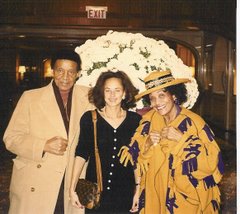
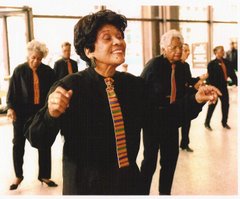
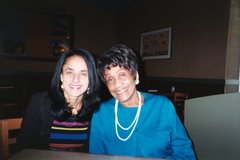
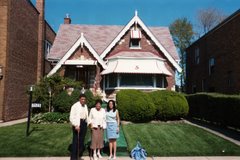
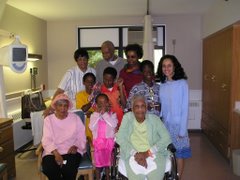

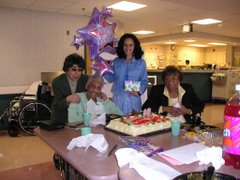
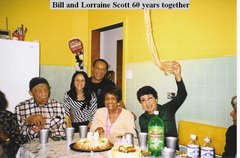
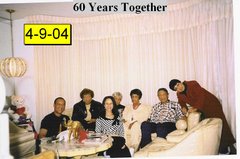
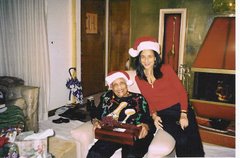
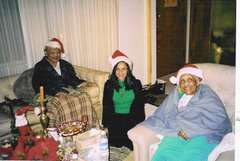
.jpg)